THEORETICAL AND HISTORICAL ASPECTS OF PEDAGOGY
Sapozhnikov S.V.
Pedagogical university of the 21th century: purpose and mission. DOI 10.32342/2522-4115-2018-0-15-8-13 ![]()
PSYCHOLOGICAL AND PEDAGOGICAL ASPECTS OF THE PERSONALITY TEACHING, UPBRINGING, AND DEVELOPMENT
Bachynskaya N.V., Zabiyako Y.О.
Prospects of using scales and questionnaires for diagnosing the psychological state of persons with combat injuries. DOI 10.32342/2522-4115-2018-0-15-14-20 ![]()
Dniprova O.A.
The transformation of marital relationships in young families. DOI 10.32342/2522-4115-2018-0-15-21-25 ![]()
Кutsenko О.М.
The essence of tolerant interaction with patients by future masters of medical education.
DOI 10.32342/2522-4115-2018-0-15-26-30 ![]()
Martynova N.P., Kovalenko Ye.V.
Modern problems of physical education and prospects of increasing the level of physical preparedness of students at higher schools. DOI 10.32342/2522-4115-2018-0-15-31-35 ![]()
Pinska O.L.
Theoretical principles of personal self-realization issue as a psychological phenomenon.
DOI 10.32342/2522-4115-2018-0-15-36-41 ![]()
Pichurin V.V., Zharko Y.Yu.
Pecularities of student youths’ perception of healthy lifestyle. DOI 10.32342/2522-4115-2018-0-15-42-47 ![]()
Rzhevsky H.M.
The impact of the internet environment on the academic activities of student youth.
DOI 10.32342/2522-4115-2018-0-15-48-55 ![]()
Rochniak A.Yu.
Methods of self-regulation of mental state as a means of correction of basketball player's state.
DOI 10.32342/2522-4115-2018-0-15-56-62 ![]()
Fednova I.M.
Study of psychological peculiarities offoreign students’communication and socialisation as an element of adaptation. DOI 10.32342/2522-4115-2018-0-15-63-68 ![]()
TOPICAL ISSUES OF SOCIAL WORK AND REHABILITATION
Bryndikov Y.L.
Organizational and pedagogical conditions of rehabilitation of Ukrainian armed forces’ servicemen who participated in combat. DOI 10.32342/2522-4115-2018-0-15-69-75 ![]()
THEORETICAL FOUNDATIONS OF CORRECTION PEDAGOGY AND EDUCATION
Harniuk L.H., Sorokina A.O.
Psychological characteristics of children with hearing impairments and their impact on choosing future professions. DOI 10.32342/2522-4115-2018-0-15-76-79 ![]()
Matyukh Zh.V.
The model of using multimedia technologies by a pre-school institution educator in educational work with an inclusive group. DOI 10.32342/2522-4115-2018-0-15-80-86 ![]()
Netosov S.І., Kuritskaya А.А.
Technologies of correcting phonetic and phonemic underdevelopment of speech in preschoolers.
DOI 10.32342/2522-4115-2018-0-15-87-90 ![]()
Nykonenko N.V.
Methodological work with parents as a precondition of effective gender education in children with intellectual disabilities. DOI 10.32342/2522-4115-2018-0-15-91-95 ![]()
THEORETICAL AND METODOLOGICAL FOUNDATIONS OF PROFESSIONAL EDUCATION
Derstuhanova N.V.
Topical aspects of training future bachelors in theology: formation of aptitude for communicative interaction in professional activity. DOI 10.32342/2522-4115-2018-0-15-96-101 ![]()
Dimitrova-Burlayenko S.D.
Creative educational environment as a factor in forming the readiness of technical university students to demonstrate creative competence in professional activity. DOI 10.32342/2522-4115-2018-0-15-102-107 ![]()
Zaluzhna A.O.
The formation of multilingual competence of students with the help of gaming teaching methods in foreign language classes. DOI 10.32342/2522-4115-2018-0-15-108-112 ![]()
Zinukova N.V.
Formation of professional interpreting competence in foreign economic field: experimental testing results.
DOI 10.32342/2522-4115-2018-0-15-113-119 ![]()
Kalenyk O.О., Tsaregradska T.L., Plyushchay I.V.
Communicative and professional aspects of structure and content of a textbook of scientific style of speech for students-foreigners of preparatory departments at higher educational institutions of Ukraine.
DOI 10.32342/2522-4115-2018-0-15-120-123 ![]()
Kalininа I.М.
The issue of personal and professional development of young civil servants in modern scientific research.
DOI 10.32342/2522-4115-2018-0-15-124-129 ![]()
Koroliova L.M.
Pedagogical practice as a tool of influencing effective future elementary school teachers' preparation for forming creative abilities of junior schoolchildren. DOI 10.32342/2522-4115-2018-0-15-130-135 ![]()
Kramarenko T.V.
Implementation of the model of forming professional dialogue culture in future commodity analysis and commercial activity specialists by means of information and communication technologies.
DOI 10.32342/2522-4115-2018-0-15-136-142 ![]()
Kremenchuk A.S.
Scientific substantiation of pedagogical technologies of forming polycultural competency of foreign medical students in the process of learning humanitarian disciplines. DOI 10.32342/2522-4115-2018-0-15-143-149 ![]()
Lukash Yu.M.
Main aspects of formation of professional and communicative competence of medical students in the process of studying social and humanitarian disciplines. DOI 10.32342/2522-4115-2018-0-15-150-156 ![]()
Mikhlik O.O., Manyakina T.I., Pliushchai O.O.
About some peculiarities of academic communication in foreign language classes at a hgher educational nonlinguistic institution. DOI 10.32342/2522-4115-2018-0-15-157-161 ![]()
Nikolenko L.M.
The social importance of value orientations of a person in professional formation of a correction teacher.
DOI 10.32342/2522-4115-2018-0-15-162-168 ![]()
Oleksienko L.A.
The content and structure of curriculum for bachelor and master’s training of translators at Austrian higher educational institutions. DOI 10.32342/2522-4115-2018-0-15-169-174 ![]()
Оliynik І.V.
Use of frame technology in the course of formation of research competence of future doctors of philosophy in the conditions of postgraduate studies. DOI 10.32342/2522-4115-2018-0-15-175-179 ![]()
Potapiuk L.M.
Theoretical aspects of competency approach in the context of professional training of specialists in engineering and pedagogical profile. DOI 10.32342/2522-4115-2018-0-15-180-185 ![]()
Sukhin O.V., Demyanchuk B.O., Кosariev V.M.
Mathematical model for forecasting the survival of higher educational institutions in competitive environment.
DOI 10.32342/2522-4115-2018-0-15-186-194 ![]()
Tarnopolsky O.B., Chernyak N.O., Bradbeer P.W.
Introductory/corrective phonetical courses in teaching foreign languages at higher schools.
DOI 10.32342/2522-4115-2018-0-15-195-201 ![]()
Timchenko-Mikhailidi N.S., Pugatch V.B.
Culturological aspect of training specialists in the course of learning foreign languages.
DOI 10.32342/2522-4115-2018-0-15-202-207 ![]()
Frytsiuk V.А., Groshovenko O.P.
Professional self-development of future teachers: competence approach. DOI 10.32342/2522-4115-2018-0-15-208-213 ![]()
Shkurko О.V.
Linguistic and psychological peculiarities of syntax analysis of ambiguous-sentences.
DOI 10.32342/2522-4115-2018-0-15-214-218 ![]()
STATE-OF-THE-ART TEACHING/LEARNING TECHNIQUES IN HIGHER EDUCATION
Biryukova T.V., Shynkura L.M.
Interactive learning technologies in the form of a round table as a method of improving independent work of medical students at a higher school. DOI 10.32342/2522-4115-2018-0-15-219-222 ![]()
Burlimova B.M., Yaslynska K.M.
Innovative technologies in foreign language learning at higher educational institutions.
DOI 10.32342/2522-4115-2018-0-15-223-227 ![]()
Volkova N.P., Stepanova A.A.
Facilitator as the significant role position of a modern teacher at higher educational establishments.
DOI 10.32342/2522-4115-2018-0-15-228-234 ![]()
Zabolotskiy A.Y.
Pedagogical conditions of the use of e-learning support system as a tool for development of ICT competencies of TSDOU employees. DOI 10.32342/2522-4115-2018-0-15-235-239 ![]()
Tokarieva A.V.
Theories accounting for educational potential of serious videogames. DOI 10.32342/2522-4115-2018-0-15-240-245 ![]()
MANAGERIAL AND PEDAGOGICO-PSYCHOLOGICAL ASPECTS OF EDUCATION
Bohdan V.O.
Technique of developing ICT-competence of pre-school education institution manager in the aspect of using Google cloud services in educational activity management. DOI 10.32342/2522-4115-2018-0-15-246-252 ![]()
Holovko S.O.
Elaboration of the cognitive component of managerial culture of a manager.
DOI 10.32342/2522-4115-2018-0-15-253-258 ![]()
Lebid’ O.V.
Structure of readiness of future heads of comprehensive educational institutions for strategic management.
DOI 10.32342/2522-4115-2018-0-15-259-266 ![]()
ABSTRACTS



